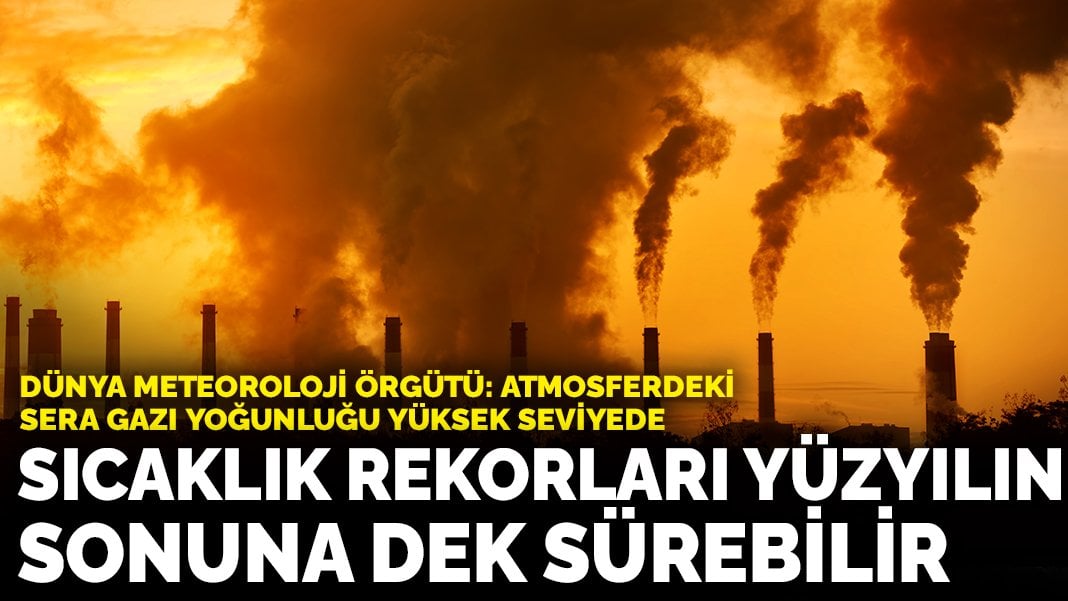The World Meteorological Organization (WMO) announced in its statement that greenhouse gases in the atmosphere that cause climate change reached their highest levels again last year. The World Meteorological Organization statement said that the global average carbon dioxide emitted in 2022 will exceed pre-industrial levels by 50 percent for the first time. The statement stated that the increase in greenhouse gases continued in 2023, and it was noted that the rate of increase in carbon dioxide concentrations this year was slightly lower than last year and the decade average.
The statement noted that this is likely due to short-term natural changes in the carbon cycle, but emissions continue to increase due to industrial activities. It was emphasized in the statement that methane concentrations in the atmosphere are also increasing, and it was noted that the level of nitrous oxide witnessed the largest annual increase recorded in 2022 compared to the previous year.
If greenhouse gas emissions increase, record temperatures will persist
He warned in the statement that if greenhouse gas emissions increase, carbon dioxide will accumulate in the air, and the record temperatures recorded this year may continue until the end of this century, even if emissions drop to zero. The statement indicated that greenhouse gases in the atmosphere reached their highest levels again last year, and it also stated that the Earth last witnessed a level of carbon dioxide similar to what it was last year 3-5 million years ago, when the temperature was low. 2-3 degrees Celsius higher.
“Fuel consumption on site must be reduced urgently.”
Speaking at the press conference in Geneva, WMO Secretary-General Petteri Taalas said that despite warnings from the scientific community, the opposite direction is still being taken. Taalas warned that current levels of greenhouse gas concentrations could raise temperatures in the future far beyond the goals set in the Paris climate agreement. Noting that rising temperatures will also be accompanied by extreme weather conditions, including heavy rainfall, melting ice and rising sea levels, Thalass called for an urgent reduction in fossil fuel consumption.

